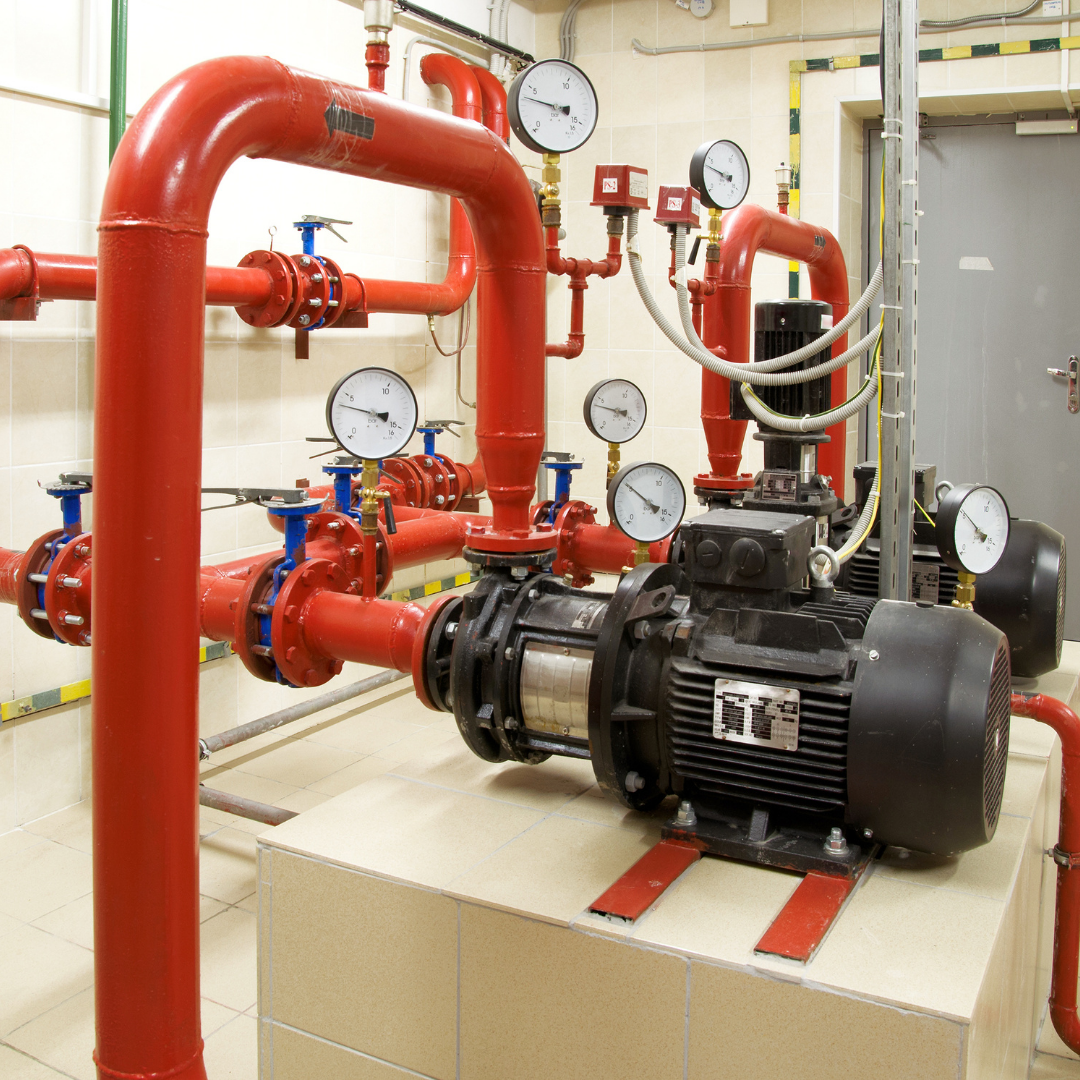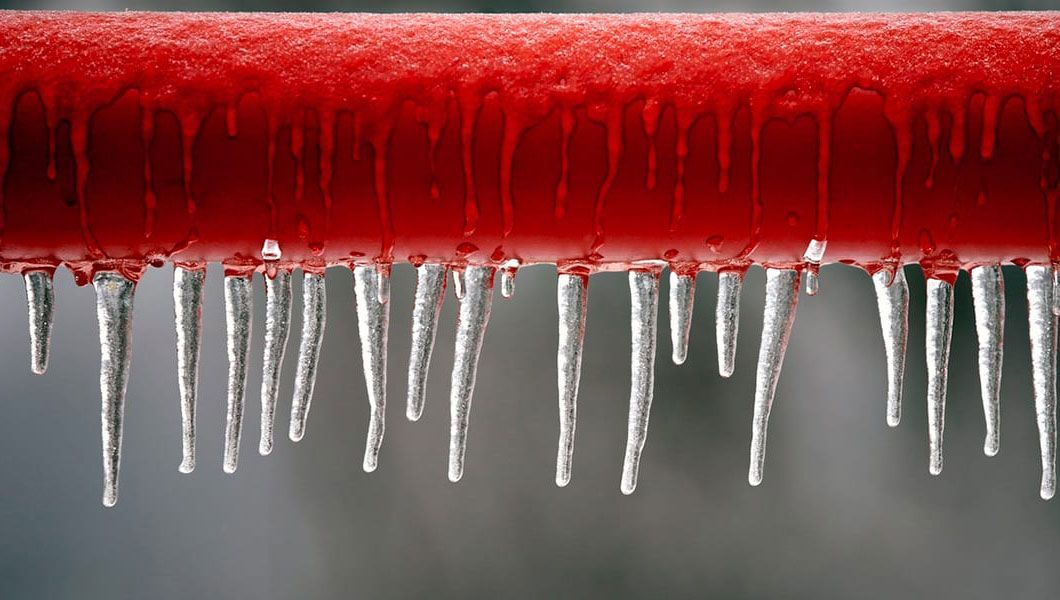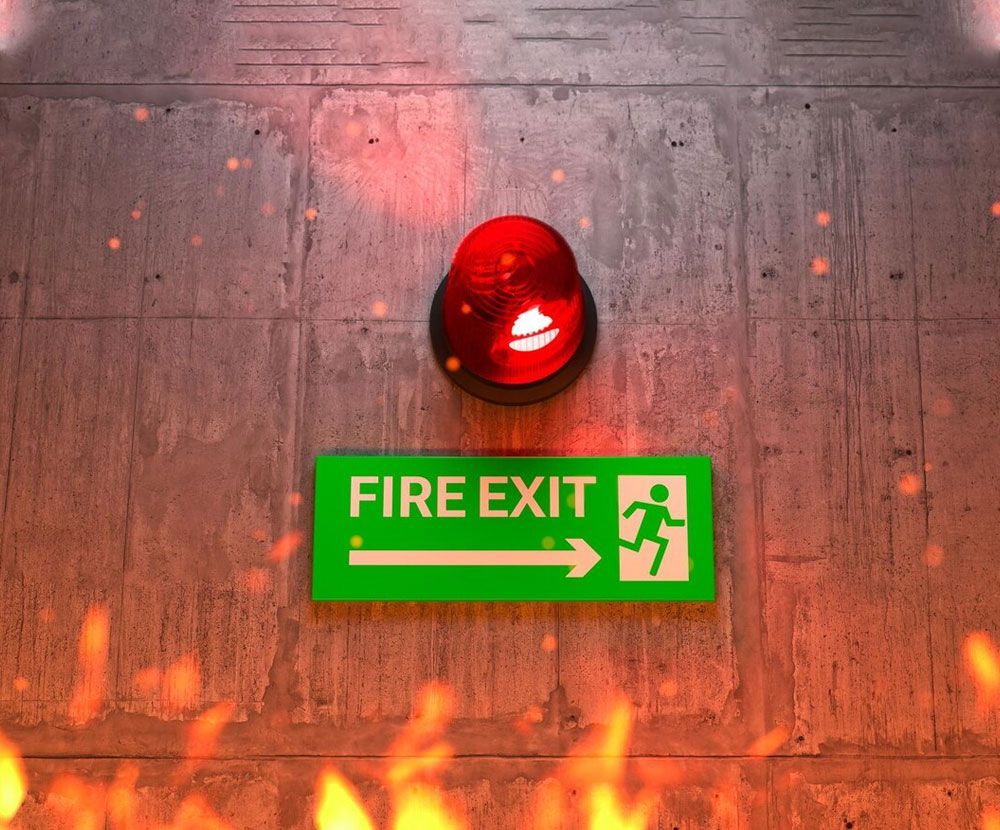
The Unsung Heroes: Fire Sprinkler Pumps and Where They Shine
Fire sprinklers are the frontline of the fire safety world. But even these champions need backup. Enter fire sprinkler pumps: the silent guardians who ensure water pressure reaches every sprinkler head when a fire strikes. This blog delves into the world of fire sprinkler pumps, exploring their applications and why they're crucial for specific buildings.
The Pressure to Perform: Why Pumps are Needed
Municipal water pressure isn't always strong enough to reach every corner of a tall building or adequately distribute water across a sprawling facility. Here's where fire sprinkler pumps come in. They boost the water pressure from the municipal supply, ensuring sufficient force to activate sprinkler heads throughout the entire fire protection system.
The Applications: Where Pumps Take Center Stage
Fire sprinkler pumps are not required in every building. Here are some key scenarios where they play a vital role:
High-Rise Buildings: As buildings climb towards the sky, water pressure from the city main often weakens with increasing height. Fire sprinkler pumps guarantee the necessary pressure to reach sprinklers on upper floors.
Large Facilities: Warehouses, shopping malls, and other expansive structures often require significant water volume and pressure to effectively extinguish fires. Fire sprinkler pumps ensure adequate water distribution throughout the entire system.
Low Water Pressure Areas: Some municipalities simply have lower water pressure in their supply lines. Fire sprinkler pumps compensate for this by boosting pressure to meet fire safety standards.
Systems with Private Water Supplies: Buildings that rely on wells, cisterns, or other private water sources may need fire sprinkler pumps to increase the pressure of the available water for proper sprinkler operation.
The Types of Fire Sprinkler Pumps
There are two main categories of fire sprinkler pumps:
Electric Fire Pumps: These pumps rely on electricity to operate. They are a popular choice due to their reliability and lower maintenance costs compared to diesel options.
Diesel Fire Pumps: These pumps utilize diesel fuel as their power source. They are ideal for situations where a power outage could compromise the electrical supply to the electric fire pump.
The Importance of Regular Maintenance
Just like any other mechanical device, fire sprinkler pumps require regular maintenance to ensure they function flawlessly when needed. This maintenance typically involves inspections, testing, and lubrication performed by qualified fire protection professionals.
Be sure to have your sprinkler pump inspected regularly, placards updated, and Flow tested as directed. Your local Fire Marshall, municipality, or fire department can help you know how often to do that. You can also contact a fire sprinkler expert like Allstar Fire Protection for advice and inspection.
Conclusion
Fire sprinkler pumps are the unseen heroes behind the scenes, ensuring fire sprinkler systems have the muscle they need to effectively combat flames. By understanding their applications and importance, building owners and managers can ensure their fire protection systems are well-equipped to safeguard lives and property.
Remember, consulting with a qualified fire protection professional is crucial to determine if your building requires a fire sprinkler pump and to choose the most suitable type for your specific needs.
For more information on fire sprinkler systems and backflow prevention, contact the professionals at Allstar Fire Protection.
Allstarfireprotection.com or 615-865-5600






